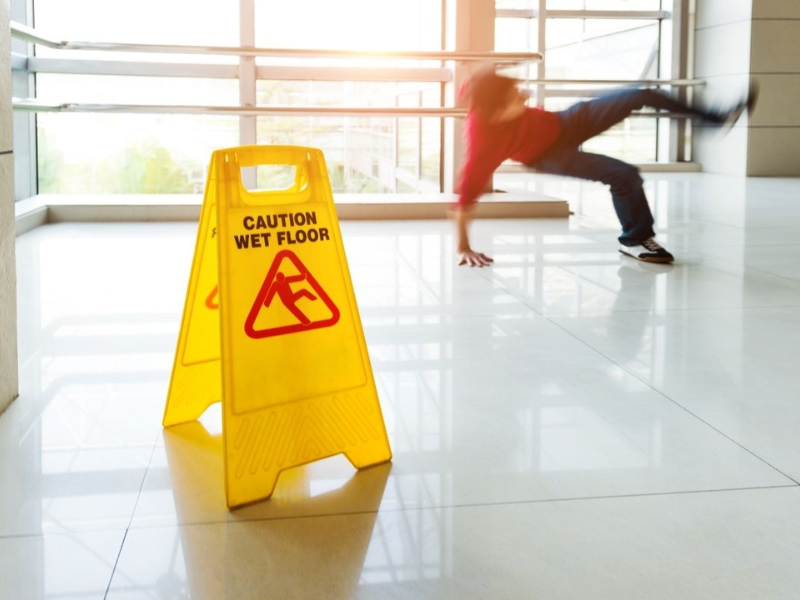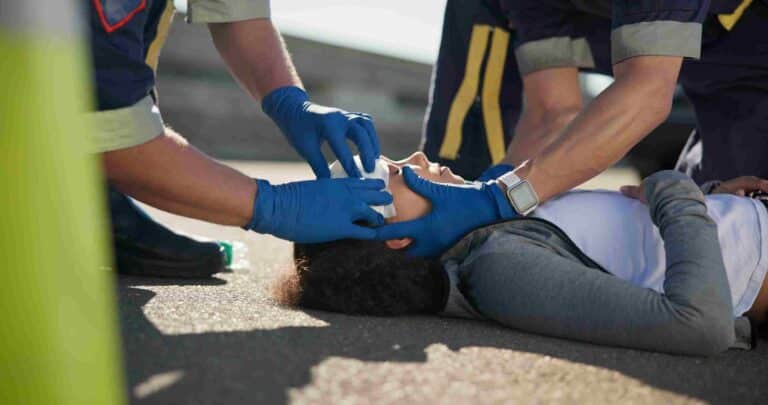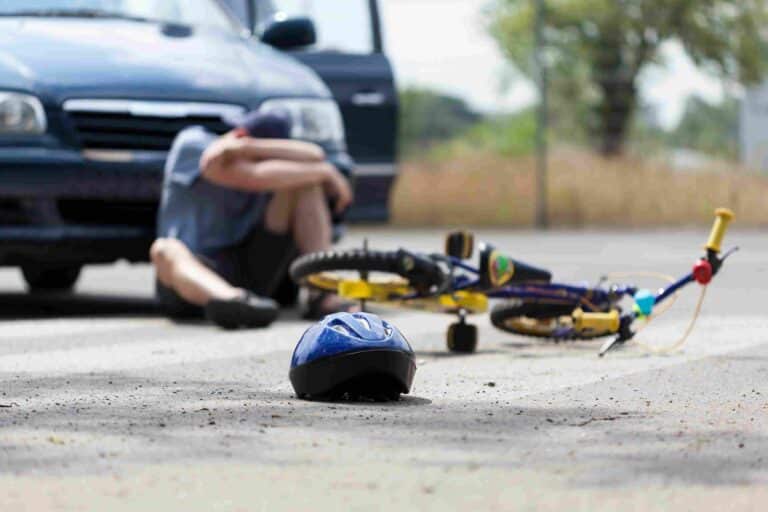Slip and Fall accidents are when a person slips and, as a result, gets injured on someone else’s property. Slip and Fall accidents are common personal injury law cases that fall under the broader category of claims known as “premises liability”.
The phrase “premises liability” stems from the fact that slip and fall usually occur on premises owned or maintained by someone else. If the owner of the property where the injury occurred is proven to be negligent, they are legally responsible for the injuries. Negligence is when the owner failed to take proper precautions to prevent or eliminate hazardous conditions.
The Severity of Slip and Fall Accidents
Slip and fall accidents are one of the most common causes of injury in the United States. People often ignore the severity of slip and fall incidents until the time it affects them or someone they know. To have the best personal injury case, it is important to receive medical attention immediately after a slip and fall accident and follow through with the recommended medical treatments.
Studies suggest, each year, more than a million people go to the emergency room for a slip and fall accident, and approximately 5% of slip and falls accidents involve broken bones. The average cost of a slip and fall is more than $30,000 per person, according to the Centers for Disease Control and Prevention.
How Common is it to Take Legal Recourse?
Lots of things can cause a slip and fall accident: torn carpets, changes in flooring, poor lighting, wet floors, narrow stairs, uneven walkways, and ice. But even though slip and fall accidents are so common, they are also far more difficult to win in court than other types of accident cases.
The main barrier that prevents people injured in slip and falls from recovering compensation is proof. It is not enough to simply prove that you fell on someone else’s property and that you were injured. You also must prove that you fell because the owner of the property did something wrong (negligent). This might be that the owner spilled something slippery on a floor and did not clean it up. Or it might mean that the owner knew something dangerous was on their property (like a broken step) and didn’t do anything to fix it.
It is critical that you take lots of photographs of the dangerous condition that caused you to be injured, that you get an incident report if possible, and that you get the names of witnesses. Without these things, your case can be very difficult to win. An experienced slip and fall attorney can tell you what proof you might need, and help you collect evidence.
Remember: Most slip and fall injuries don’t end up with a settlement or recovery because the injured person doesn’t have enough proof to win their case. If you’re injured, it’s important to act quickly and hire an experienced attorney.
What’s the Law?
The law regarding slip and fall cases (more broadly known as premises liability cases) is complex and depends a lot on the specific facts of each case. A good place to look for a simple explanation of the law, though, is the Maryland Civil Pattern Jury Instruction. The Maryland State Bar Association goes to great efforts every year to keep updated, simple explanations of the law for use in courtroom proceedings. Chapter 24 addresses premises liability.
Here are few useful instructions:
MPJI-Cv 24:1 The duty of the owner or possessor of property to people injured on their property depends on the injured person’s status on the property.
(a) Invitee
MPJI-Cv 24:
(a) Invitee. An invitee is a person who is invited or permitted to be on another’s property for purposes related to the owner’s or occupier’s business.
(b) Social Guest or Licensee by Invitation. A social guest or licensee by invitation is a person who is on the property of another at the express or implied invitation of the owner or occupier for reasons unrelated to the owner’s or invitee’s business.
(c) Bare Licensee. A bare licensee is a person who is on the property with the consent but not at the invitation of the owner or occupier, and who is there to serve his or her own interests but not to serve any interest of the owner or occupier.
(d) Trespasser. A trespasser is a person who is on the property of another without the consent of the owner or occupier of the property.
MPJI-Cv 24:3 The duty owed to an invitee is to use reasonable care to see that those portions of the property that the invitee may be expected to use are safe.
MPJI-Cv 24:4 The duty owed to a social guest or licensee by invitation is to exercise reasonable care to make the premises safe or to warn the guest of known dangerous conditions that cannot reasonably be discovered by the guest.
MPJI-Cv 24:5 The only duty owed to a bare licensee or trespasser is to refrain from willful injury or entrapment. A bare licensee or trespasser takes the property as it exists.
MPJI-Cv 24:6 If a landlord sets aside a portion of the property or reserves facilities for the common use of tenants, then the landlord owes the tenants a duty to exercise reasonable care to keep those portions or facilities in a safe condition. This duty extends to the tenants’ guests and invitees.
MPJI-Cv 24:8 For a landlord to be liable for injury caused by a defect or unsafe condition, the landlord must have known or had reason to know of the defect or unsafe condition in sufficient time to correct it or to warn the tenant before injury occurred.
For more than 50 years, Holzman & Dickriede Attorneys at Law has obtained substantial verdicts and settlements for injury victims throughout Maryland. Ask around about us! If you believe you are entitled to compensation, contact us at 410-539-4222 for your free consultation.
Read Next:
What To Expect With The Personal Injury Case Process
7 Questions to Ask Before Hiring a Personal Injury Attorney





